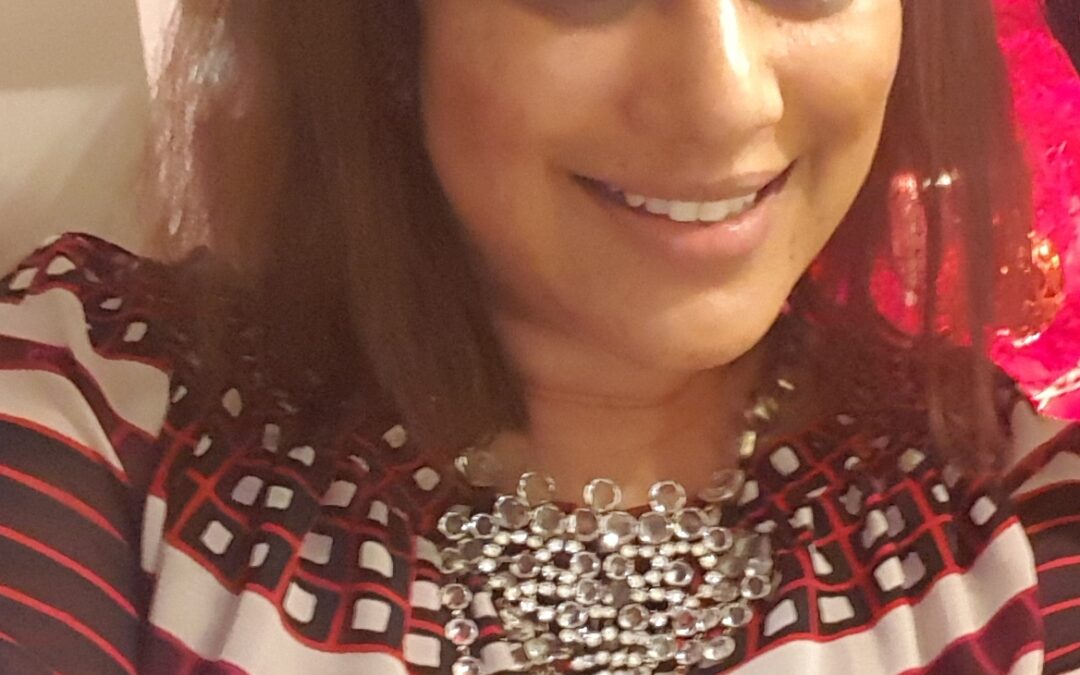
Tags: by Gayathri Ramprasad | Jul 8, 2017 |
As former Prime Minister of India, Indira Gandhi said, “Life is a continuous process of adjustment. “When my father suddenly passed away nearly twenty years ago, I never thought my privileged happy go lucky life would crash. Gradually, within two years, my mother’s mental state started to decline with clouded decision making, irritability, and her million-dollar-watt smile faded and eventually became non-existent. Hindu Priests manipulated the fact we are Brahmins, and created a paranoia in her delicate mind because they reassured her we did not perform my father’s rituals properly. Their solution was to instill fear at an emotional and financial price. My mom, my best friend, my sister suddenly felt like my enemy because we could not see eye to eye on anything, creating major meltdowns. It was impossible for me to comprehend what was happening. Was she severely depressed, brainwashed or just losing the plot. It was very challenging for me to confide in people because I was ashamed to air our “dirty laundry” in public or even admit my mom possibly had a mental illness. I wanted to cry for help, but people would say my mom is naïve and delicate like a flower. Fast forward nearly two decades, at the age of 69, my mom has been officially diagnosed with dementia, a disease of the mind. Earlier this year, when I interacted with some Aunties and they inquired about my mom, and I told them about her diagnosis they said… she did it to herself. The fact is she did not do it to herself, nor does she deserve to go through this journey alone. Dementia particularly vascular dementia does require a medical diagnosis and sadly...
Tags: by Gayathri Ramprasad | Jul 8, 2017 |
Subrina Singh is a passionate young writer and recently published her love story entitled, “Soniye” in the anthology of Sikh Love Stories, Her Name is Kaur. After completing her degree in Asian and Asian American Studies at Stony Brook University, she is now pursuing her Master’s Degree at Columbia University in South Asian Studies. More recently, she has become committed to using her experience with mental illness to help better the mental-health awareness within the South Asian community. She currently writes for BrownGirlMagazine.com & ZeeTV’s India.com. ASHA International salutes Subrina’s courage in sharing her...
Tags: by Gayathri Ramprasad | Jul 8, 2017 |
GAYATHRI: Vijay, what inspired you to switch careers from the corporate world to mental health? VIJAY: I had already spent 15 years in the corporate world. I had reached middle management level in a Fortune 500 company. My specialty was in strategic planning. While I found that to be challenging and interesting, I was looking for a change that would allow me to work at a one on one level helping individuals. At the same time my wife was going through her Masters in social work. Our discussions about the human experience resonated with me enough to motivate me to make the change. GAYATHRI: What forms of therapy do you provide and what are their unique benefits? VIJAY: My training has been in psychodynamic psychotherapy, Gestalt therapy, solution focused therapy, rational emotive behavior therapy, traditional cognitive behavioral therapy, and acceptance and commitment therapy. The last three approaches fall under the overall umbrella of cognitive behavioral therapy. In addition, I have been trained in mindfulness-based stress reduction which is meditation based. I have come to focus my practice in cognitive behavioral therapy. It is the gold standard and frontline treatment for most psychological conditions. I typically explain the three cognitive behavioral therapy approaches that I use to the patient and in most cases help the patient to decide which one resonates for her/him. Traditional cognitive behavioral therapy tends appeal to those who lean towards pragmatism, logic and problem solving. Acceptance and commitment therapy, which has a strong mindfulness-based component, tends to appeal to those who are more interested in going beyond the immediate symptoms and working on bringing meaning and...
Tags: by Gayathri Ramprasad | Jul 8, 2017 |
Mental health is integral to our overall well-being, and the well-being of our families and communities. But, coping with stress, anxiety, depression and other mental health conditions can be difficult and isolating. And, the cultural stigma and shame surrounding mental illness in the South-Asian community can prevent people from seeking help. SAATHI, a South-Asian Mental Health Outreach Program of ASHA International aims to: Promote awareness about mental health and emotional well-being Improve access to care, & Connect people to community supports and wellness resources The program supports people from India, Pakistan, Bangladesh, Bhutan, Nepal, Sri Lanka and Afghanistan living in the Portland metropolitan area. If you or your loved one is struggling with stress, anxiety, depression, and other mental health conditions, you are not alone. We can help. Please email us at saathi@myasha.org A member of our team will reach out to you within 48 hours. You are not alone. There is hope. We can help. To meet the SAATHI team members, please click...


